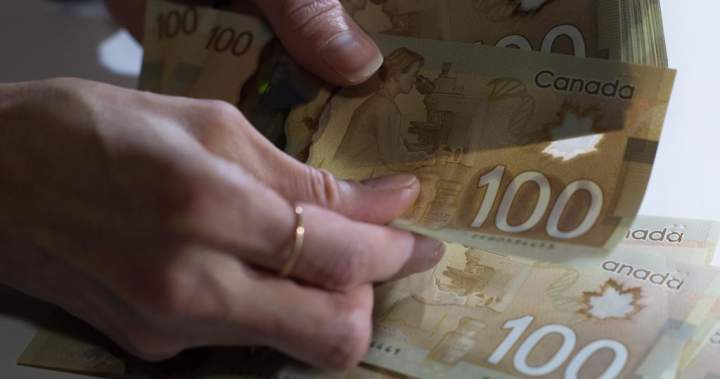
The Liberal government’s new federal budget is proposing cuts and reductions to prominent policies once championed by the party, including the luxury tax on boats and private planes, a tax on underused homes and potentially the greenhouse gas emission targets.
Other measures include a “super-reduction” to Canada’s marginal effective tax rate and further automating traveller screening at the nation’s airports, which the government says will help deliver “efficiencies” along with the rest of the public sector.
Here’s a rundown of what the budget proposes to cut.
The government is proposing to eliminate the “inefficient” Underused Housing Tax and the luxury tax on private aircraft and vessels, which the budget says “will result in administrative savings” for the Canada Revenue Agency (CRA).
The Underused Housing Tax, enacted in 2022, adds an additional one per cent federal tax on the ownership of vacant or underused housing in an effort to crack down on foreign ownership by non-residents.
The NDP said in a statement that cutting the tax is among the budget measures that “we believe are a step in the wrong direction,” though the party did not say whether it will support the budget in the House of Commons.
The luxury tax, which still applies to luxury vehicle purchases over $100,000, was updated in 2023 to apply to certain vessels like yachts and sailboats, as well as private jets, helicopters and seaplanes.
The budget says that “to provide relief to the aviation and boating industries and increase the overall efficiency of the luxury tax framework, Budget 2025 announces the government’s intention to end the luxury tax on aircraft and vessels as of the day after Budget Day.”
The budget says the CRA will also save money by winding down business units “no longer connected to government priorities,” including those dedicated to the scrapped digital services tax, the federal fuel charge, and the individual and business consumer carbon price.
In order to spur investment and competition with the U.S., the budget proposes a “super-reduction” of more than two percentage points to Canada’s marginal effective tax rate for corporations.
The cut, which will bring that tax rate for eligible corporations down to 13.2 per cent overall, would put Canada further below the U.S. rate and the OECD average. The rate will also dip below the U.S. across all major economic sectors following the cut, according to the budget.”

Get weekly money news
Get expert insights, Q&A on markets, housing, inflation, and personal finance information delivered to you every Saturday.
“This means that businesses can invest and scale more easily and that Canada will remain an attractive destination for investment,” the budget says.
The budget describes that “super-reduction” as a set of enhanced tax incentives covering all new capital investment that allows businesses to write off a larger share of the cost of these investments right away.”
“Under this measure, companies can recover their investment cost faster through the tax system. This makes it more attractive to invest in machinery, equipment, technology, and other productivity enhancing assets and improves Canada’s competitiveness for attracting investment.”
The government is also proposing amendments to the Income Tax Act to ensure multinational insurers “do not avoid tax on their Canadian insurance business by operating through a foreign subsidy.”
The budget says the Canadian Air Transport Security Authority (CATSA) will “reduce its day-to-day expenses by minimizing spending on professional services, leveraging technology to automate certain processes and functions, and modernising its organizational structure.”
“This will include deploying automated systems to detect prohibited items at pre-board screening checkpoints and enhance screening efficiency,” the budget stated, while promising “no impact on the security of travellers.”‘
The budget also says the government will “explore” the possibility of privatizing Canadian airports.
Overall, the budget includes the elimination of 40,000 government positions – roughly 10 per cent of the public service – over the next three years.
The Liberal budget cuts will include “restructuring” public service operations and consolidating some services within government, as well as “rightsizing programs to realize efficiencies.” That “rightsizing” will mean relying on attrition as well as job cuts to reduce the size of the bureaucracy.
The Liberals are promising a different approach to reducing greenhouse gas emissions, building on its move to end the consumer carbon price for individuals earlier this year.
The budget says the federal oil and gas emissions cap — a point of contention between Ottawa and Alberta in particular — “would no longer be required” after stated plans to bring in enhanced methane regulations for the industry and the deployment of carbon capture and storage technology.
“Canada is committed to bringing down the emissions associated with the production of oil and gas,” the budget says.
The government is committing to legislative amendments to the Canadian Environmental Protection Act that will include methane regulations and updates to the Clean Fuel Regulations that will “help reduce reliance on imported fuels,” but did not elaborate.
The budget also commits to Clean Electricity Regulations that will facilitate the building of a clean nationwide electricity grid with provinces and territories — a move the NDP said it supports.
© 2025 Global News, a division of Corus Entertainment Inc.








